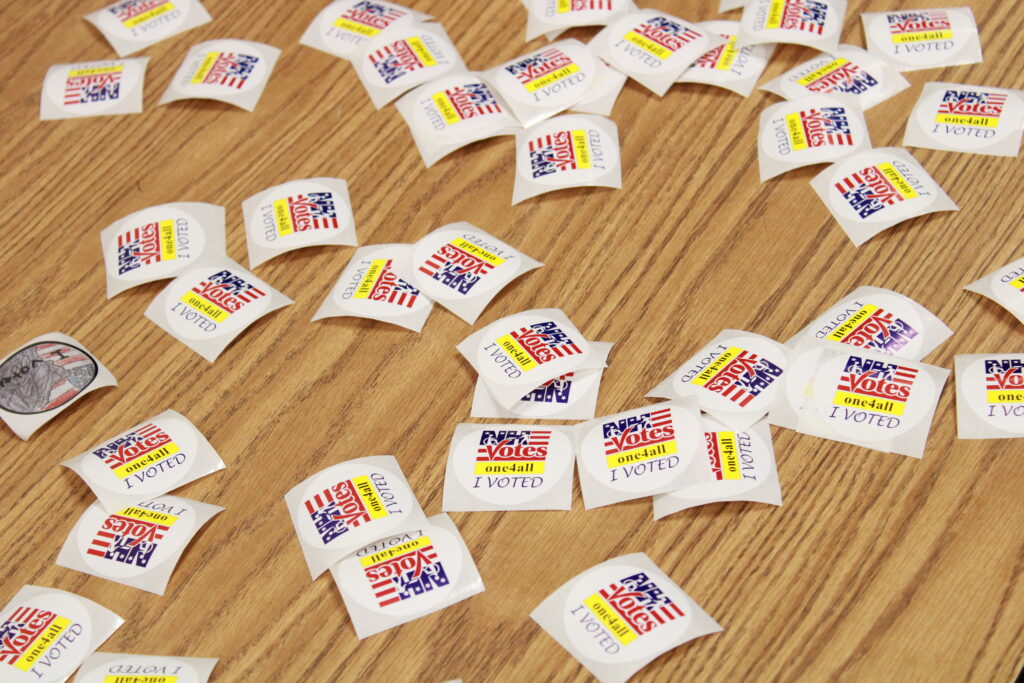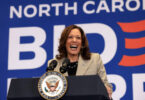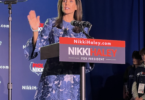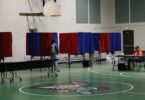
By Michael Rodriguez and Crystal Yormick
Boston University News Service
Young voters will be the deciding factor for the upcoming presidential election according to Nikki Haley supporters following the New Hampshire primary elections held yesterday. However, the direction they’ll swing remains up in the air.
With New Hampshire’s newest legislation now allowing 17-year-olds who will be 18 by the next election to vote in the primaries, the Granite State is seeing a wave of first-time voters.
The main findings in a pre-2024 election youth survey state that “57% of young people are extremely likely to vote, with 15% saying they’re fairly likely.”
Additionally, this survey further dove into party affiliations, stating that 51% plan to back the Democratic Party, 30% the Republican Party and 16% are undecided.
Angie Eisenbach, a district 5 ward clerk, said there was “nothing abnormal” about the number of young voters that attended the Beech Street School polling location, insisting that the turnout was typical.
Robert Fox, a semi-retired grower and agricultural co-op from Maine echoed this, said the polls seemed “quiet.”
“Both Biden and the other person [Trump] are pretty much shoo-ins for the office,” said Fox, who was campaigning for Jason Palmer outside the polls. “I’m not sure it’s really gaining much traction with people out there.”
Despite the lack of an increase in voters, attendees interviewed at Haley’s post-election gathering held at the Grappone Conference Center in Concord, New Hampshire shared the common consensus that young voters will continue to have an impact in November.
Nick Gray, a real estate developer and New Hampshire resident at the event, said he was impressed with how many people between 18 and 30 years old were present at the rally.
Despite this, however, he said that he remains unsure of how younger voters will be casting their ballots in November, stating that Haley is the last shot to “invigorate that younger voting base.”
Among the younger attendees were students from Mamaroneck High School, located about a four-hour drive away. The students traveled to New Hampshire on Sunday to participate in various political activities surrounding the primary elections.
Joe Liberti, the AP US Government and Politics teacher at the school, said the annual trip is meant to give students more “hands-on, visceral experience” in an attempt to get them more involved in politics.
“It’s to make them sort of more comfortable going forward, and therefore, they’re more willing to engage in not just campaigning but more broadly, politics,” said Liberti.
He added that while he thinks the presidential election in November has the potential to be dependent on younger voters, he is concerned about the lack of excitement he is currently seeing.
“Young people are not excited about Biden, [and] young people are not excited about Trump,” Liberti said. “So I don’t know because they absolutely have crucial differences. They could definitely be a game changer.”
Although the high school students were unable to vote because they live in New York and some are under 18, Nikko Mallet, another Mamaroneck AP Government and Politics teacher, said that they were still able to influence their political surroundings through calling on phone banks, attending rallies and door-to-door campaign knocking.
He specifically said that the students holding signs outside polling locations had a particular impact.
“A lot of people were like we made up our minds as we were walking in the door because you guys were here,” said Mallet, referring to the reactions voters had to the students.
For students who were present on the trip and will reach the voting age minimum by November, uncertainty lingers for what candidate they will settle on.
Climate change, along with other key issues including inflation/cost of living, gun violence and jobs that pay a living wage, are key issues that voters from ages 18-34 deem as important in the decision process.
Although the opinions of youthful voters remain unclear, many agreed that at the very least, people should still vote.
“Come November, there’s really two names on that ballot that you’re gonna have to pick between,” said Liberti.” “If you don’t go out and vote, then assume that you’re really voting for the person you don’t want in office, whoever that may be.”




